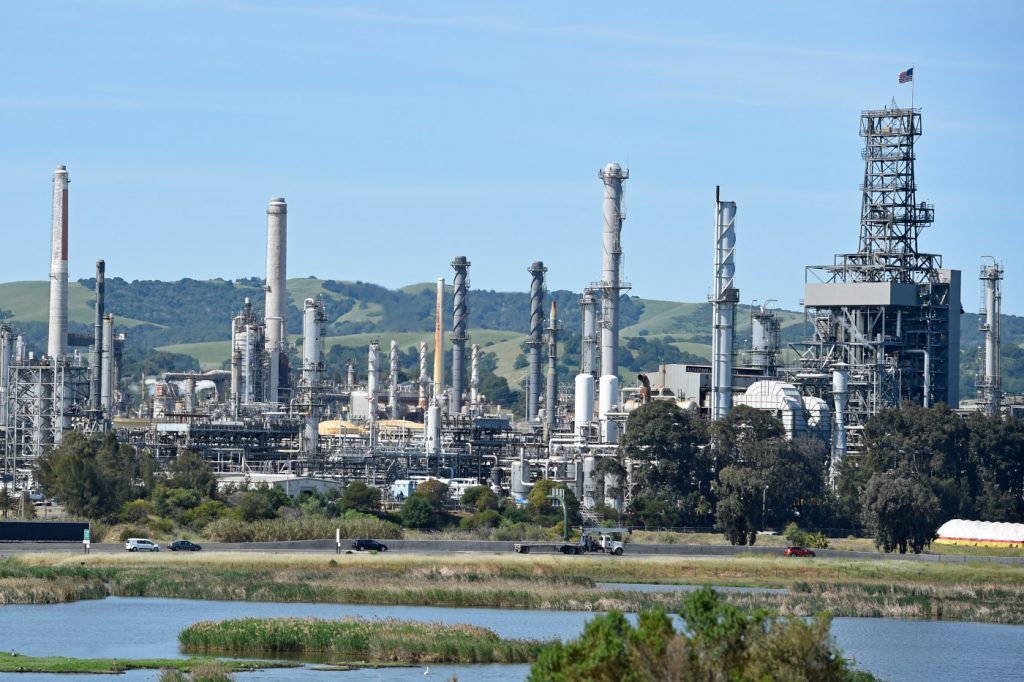Price shocks have hit everything from eggs and meat to car parts, with experts pointing to corporate price gouging as a major contributor to the crisis. But when it comes to ripping off Californians, there’s one especially bad actor: The oil industry has been exploiting us for decades.
Research shows the oil industry’s alleged collusion and lack of accountability have driven up costs, leaving California drivers with the highest gas prices in the nation and spikes north of $6 a gallon. Of course, the industry’s harms don’t end there: Big Oil is leading us to climate catastrophe and heavily polluting communities.
Thankfully, Gov. Gavin Newsom and state agencies like the California Air Resources Board have acted to check the industry’s abuses, including a new law that could penalize oil companies for price gouging. The California Attorney General filed a lawsuit against the world’s largest oil companies for “50 years of deception, cover-up, and damage.” And our state agencies have passed a flurry of life-saving, world-leading zero-emissions regulations that will help shift us off oil and gas altogether.
Newsom is on track to deliver real wins for the Californians harmed by the oil industry. Now, it’s time for him to expand his advance by reforming the state’s largest and oldest climate program to line it up with our zero-emissions future.
The Low Carbon Fuel Standard (LCFS), a relic of California’s last Republican administration, was built to promote low-carbon transportation options. Unfortunately, the current LCFS is anchored to polluting fuels championed by the oil industry.
Shockingly, less than a quarter of the roughly $4 billion in credits in this program go toward zero-emissions vehicles aligned with Newsom’s vision for clean transportation.
Instead of ramping up incentives for charging infrastructure and clean public transit (investments that could free California drivers from high oil prices and boost jobs), the California Air Resources Board is supporting fuels like biofuels and biogas. These fuels, largely made from food crops like soy and canola or from manure at factory farms, pump out pollution in overburdened communities and have dubious climate benefits.
They are also Big Oil’s preferred climate “solutions” because they provide lucrative opportunities to use defunct oil infrastructure.
At least three California oil refineries, including one in the Bay Area just outside Martinez, are already setting up to produce biofuels. Supported by LCFS incentives, these refineries will produce biofuels from food crops that are destroying tropical rainforests, while continuing to pollute California communities. And biogas projects at factory farms are becoming cash cows for Big Oil, cementing the harms of factory farming on poor, rural communities. Reliance on these fuels, which have serious climate consequences of their own, secures the oil industry’s continued power over our transportation system.
Related Articles
Letters: Utility tax | Green energy | Higher ideal | Ending violence | No good choice
PG&E customers face more increases in monthly utility bills: new state proposal
Opinion: Rooftop solar and batteries remain valuable investments
How the promise of big energy savings in one Bay Area school district led to a $50 million controversy
The first electric school bus fleet in the US will also power Oakland homes
A broad coalition of academics, environmentalists and environmental justice advocates have identified key reforms to the Low Carbon Fuel Standard. These include putting a cap on the use of biofuels derived from food crops, eliminating incentives for manure-based biogas, and multiplying incentives for electrification.
Together, these reforms will ensure that California is directing investments to transportation technologies that dislodge rather than reinforce Big Oil’s role in our transportation sector. And by trimming bogus credits, the program can achieve more climate gains for far less money.
Newson has taken pathbreaking steps to rein in oil company profiteering and move us to a clean, electric transportation future. But the LCFS has continued to invest billions of California’s climate dollars in polluting combustion fuels. With the program teed up for reform this year, Newsom should seize the opportunity to deal another blow to Big Oil’s abuses and set the program on solid ground with a clear aim toward zero emissions.
Amelia Keyes is an attorney at Communities for a Better Environment and Sasan Saadat is a senior policy analyst on Earthjustice’s Right To Zero campaign.


